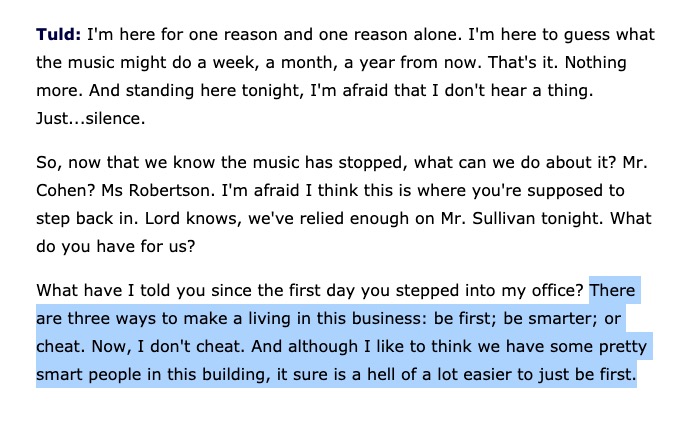
Feels like an appropriate time to re-share this classic in which @mtaibbi refers to Goldman as:
"a great vampire squid wrapped around the face of humanity, relentlessly jamming its blood funnel into anything that smells like money"
rollingstone.com/politics/polit…
"a great vampire squid wrapped around the face of humanity, relentlessly jamming its blood funnel into anything that smells like money"
rollingstone.com/politics/polit…
https://twitter.com/NonGaap/status/1376639431629660161
one of the best lines to ever appear in print IMHO
Also, the Margin Call speech is perfect
"There are 3 ways to make a living in this business: be first; be smarter; or cheat. Now, I don't cheat. And although I like to think we have some pretty smart people in this building, it sure is a hell of a lot easier to just be first"
"There are 3 ways to make a living in this business: be first; be smarter; or cheat. Now, I don't cheat. And although I like to think we have some pretty smart people in this building, it sure is a hell of a lot easier to just be first"

• • •
Missing some Tweet in this thread? You can try to
force a refresh


